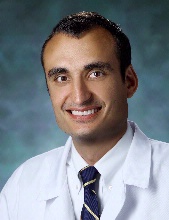Data Science and Parkinson's Disease
Using data to predict individual health outcomes based on treatments, genomics, and lifestyle and behavioral factors may lead to some of the biggest advances in health care.
 Co-directors of the Center for Human Experimental Therapeutics Ray Dorsey, the David M. Levy Professor in Neurology, and Karl Kieburtz, the Robert J. Joynt Professorship, along with Max Little, a mathematician and lecturer at Aston University in the United Kingdom, partnered with Sage Bionetworks to develop an iPhone tracking app called Parkinson mPower (Mobile Parkinson Observatory for Worldwide, Evidence-based Research). The app, which is available now, allows patients with Parkinson’s disease to track their symptoms in real time and share information with researchers.
Co-directors of the Center for Human Experimental Therapeutics Ray Dorsey, the David M. Levy Professor in Neurology, and Karl Kieburtz, the Robert J. Joynt Professorship, along with Max Little, a mathematician and lecturer at Aston University in the United Kingdom, partnered with Sage Bionetworks to develop an iPhone tracking app called Parkinson mPower (Mobile Parkinson Observatory for Worldwide, Evidence-based Research). The app, which is available now, allows patients with Parkinson’s disease to track their symptoms in real time and share information with researchers.
“To have a dedicated Parkinson’s app backed by research that will allow patients to engage with their care and receive feedback on their condition is amazing,” says Dorsey, whom the White House has named as a “Champion of Change” in the fight against Parkinson’s. “It is heartening to make the data in the aggregate available for research. Five years ago this would be have inconceivable.”
